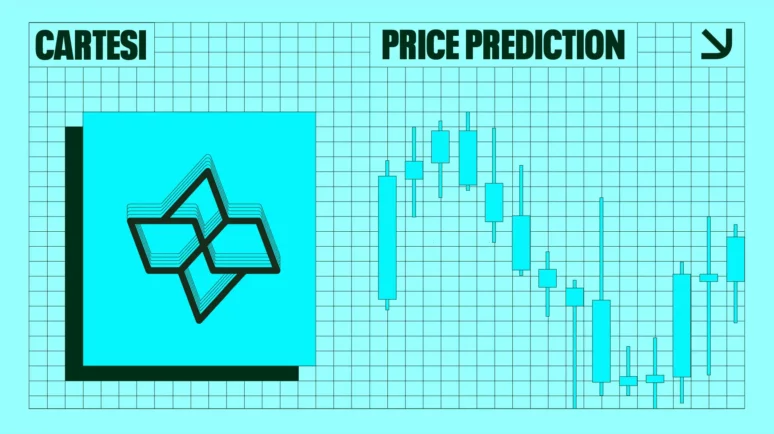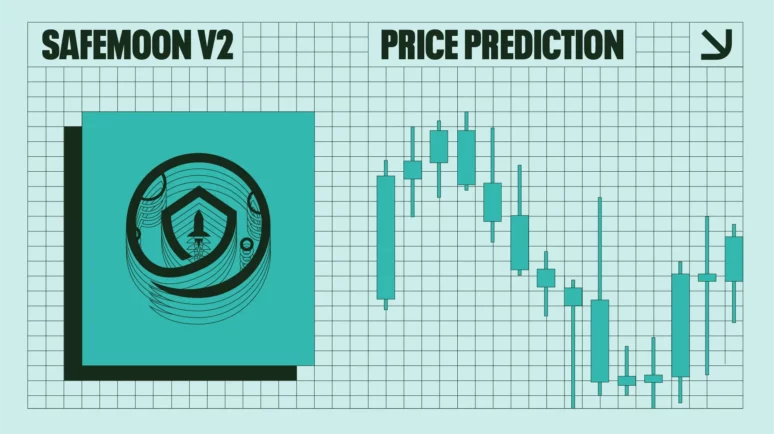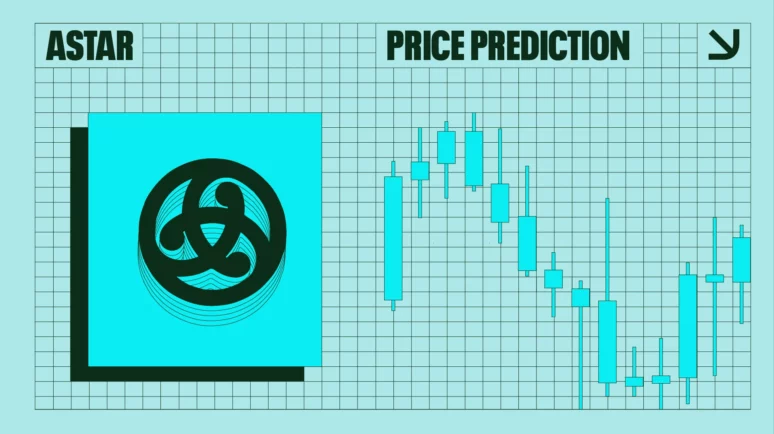Kaspa Price Prediction 2024: What Next for KAS After All-Time High?

What's next for Kaspa?
Key Takeaways
- Kaspa is a blockchain that aims to provide both quick transaction speeds and security.
- Its native token, KAS, reached an all-time high in February 2024.
- Can KAS recover from recent losses?
- One Kaspa price prediction says KAS can reach $0.4651 next year.
The Kaspa blockchain is a relative newcomer to the crypto world. Conceived in 2021 and hitting the market in 2022, the platform and its native coin, KAS, have already started to make some crypto investors sit up and take notice.
KAS has enjoyed a pretty strong 2023 so far, with the news that its blockchain was able to process 10 transactions per second and getting its browser wallet leading to it reaching a high in September before declining only to shoot up in late October and early November.
The blockchain reached its highest-ever speeds in September and its price caught up a couple of months later.
On November 19, following a listing on Binance, KAS reached a high of $0.154.
However, a market downturn saw KAS fall below $0.10 and, by January 24, 2023, it was back down to around $0.09955.
There was, however, some recovery after that KAS hit an all-time high of $0.1894 in February. There was a dip after that and, by March 18 2024 Kaspa was worth about $0.133.
Kaspa did not immediately respond to a request for comment.
But what is Kaspa (KAS)? How does Kaspa work? Let’s see what we can find out, and also take a look at some of the Kaspa Price Predictions that were being made as of March 18, 2024.
Kaspa Coin Price Prediction
Let’s examine some of the Kaspa price predictions being made on March 18, 2024. It is crucial to bear in mind that price forecasts, particularly for a potentially volatile asset like cryptocurrency, often turn out to be inaccurate. Additionally, please remember that many long-term crypto price predictions are generated using algorithms, which means they can change at any time.
| 2024 | 2025 | 2030 | |
|---|---|---|---|
| Prediction #1 | $0.28 | $0.33 | $0.99 |
| Prediction #2 | $0.1837 | $0.2695 | $1.60 |
| Prediction #3 | $0.3322 | $0.4651 | $1.13 |
First, CoinCodex made a short-term Kaspa price prediction for 2023 which said that the coin would reach $0.1674 by March 23 before rocketing to $0.4428 by April 17. The site’s technical analysis was bearish, with 17 indicators sending downbeat signals and 11 making bullish ones.
Kaspa Price Prediction for 2024
DigitalCoinPrice said Kaspa would get to $0.28 in 2024. PricePrediction.net was more cautious, forecasting it to trade at an average of $0.1837. Bitnation was more enthusiastic, saying KAS would reach $0.3322 this year.
Kaspa Price Prediction for 2025
DigitalCoinPrice thought KAS would get to $0.33 in 2025 while Bitnation thought KAS would reach $0.4651 then. PricePrediction.net said it would reach $0.2695 next year.
Kaspa Price Prediction for 2030
Moving on to a more long-term Kaspa price prediction, PricePrediction suggested it would be worth $1.60 in 2030. DigitalCoinPrice thought the coin would trade at $0.99 that year. Bitnation, meanwhile, had a KAS price prediction that said it would stand at $1.13 at the start of the next decade.
Google BardAI Price Prediction for Kaspa (as of March 18)
Google’s BardAI platform gave the following price prediction for Kaspa on March 18. Please remember that the exact price prediction of an asset or cryptocurrency in the future is nearly impossible to achieve. Additionally, artificial intelligence price predictions are predicated on past performances and are in no way entirely accurate.
Short-Term (Next Few Months):
- Prediction: $0.14 – $0.18 (Slight Increase)
- Reasons: This range reflects the current mixed sentiment. While the Fear & Greed Index suggests overconfidence, some analysts predict a rise due to Kaspa’s potential. However, overall market volatility might limit significant gains.
Medium-Term (Next 1-2 Years):
- Prediction: $0.28 – $0.66 (Moderate Increase)
- Reasons: This wider range considers predictions from various sources. Kaspa’s growing popularity and potential 2025 Bitcoin Halving effect could push prices higher. However, reaching the upper range depends on broader market trends and Kaspa’s development.
Long-Term (5+ Years):
- Prediction: $0.40 – $2.56 (Highly Speculative)
- Reasons: Long-term predictions are highly uncertain. A positive scenario includes widespread adoption of Kaspa’s technology and multiple Bitcoin halving cycles, potentially driving significant price increases. However, these forecasts are very optimistic, and Kaspa needs to overcome challenges and establish itself in the competitive crypto market.
Important to Remember:
- These are predictions, not guarantees. The cryptocurrency market is highly volatile, and unexpected events can drastically alter prices.
- Do your own research before making any investment decisions. Consider factors like Kaspa’s development roadmap, team, and market competition.
Additional Tips:
-
- Look for reliable sources when researching Kaspa’s future.
- Be aware of your risk tolerance and only invest what you can afford to lose.
Recent Updates from Kaspa
Although the biggest news from the Kaspa blockchain is that it reached an all-time high, that isn’t the only noteworthy development from the platform.
In September, it was revealed that the platform had reached its highest-ever hashrate.
The KAS coin has capitalized on reaching its highest-ever speeds. Not only that, but it has started work on a browser-based crypto wallet.
Meanwhile, October saw KAS listed on the XT.com and the Coinone crypto exchange, while its November Binance listing helped it to reach record levels.
More listings continued in the new year, with KAS arriving on the Onramp Money exchange on January 18.
Earlier this year, it announced that it would become available on the Poolin crypto liquidity platform, which also saw it get a price boost.
KAS Price History
Let’s now take a look at some of the Kaspa price history . While we should never take past performance as an indicator of future results, knowing what the coin has done can help give us some very useful context when it comes to either making or interpreting a Kaspa price prediction.
KAS first came onto the open market in the middle of 2022. At that time, the market was struggling with a downturn triggered by the collapse of the Terra (LUNA) blockchain and Kaspa traded at around $0.0005. It hovered around that level for the next few months before slowing climbing later on in 2022, closing the year at $0.00528.
Kaspa in 2023 and 2024

2023 saw the crypto market make something of a recovery, and KAS followed suit. A buoyant market saw the coin make a bull run, reaching a then-record price of $0.04238 on April 4.
After that, the price fell, reaching a low of $0.01204 on May 24. It then looked like it was making a recovery, trading at above $0.015 in late May and early June. When the United States Securities and Exchange Commission (SEC) announced that it was suing the Binance and Coinbase exchanges, the market panicked. Kaspa slipped back down to a low of $0.0136 on June 6.
There was a recovery after that, with the coin’s price boosted by the news that the blockchain had become quicker, and, on August 6, Kaspa reached an all-time high of $0.05148.
In the month or so after that, KAS fell. This was down to a market crash caused by Elon Musk’s SpaceX selling millions of dollars worth of Bitcoin (BTC). On September 5, it fell to a low of $0.03313.
KAS recovered, reaching a new all-time high of $0.05346 on September 20. It dropped to $0.0415 on October 11 but made a comeback, reaching new levels and trading at what was then an all-time high of $0.154 on November 19.
It then fell, closing the year at $0.1122. This meant KAS had climbed more than 2,000% in 2023.
So far, 2024 has had its ups and downs. It peaked at $0.1293 on January 11 before falling back down below $0.10 on January 23. By January 24, it was worth about $0.999. It surged in February, reaching a new all-time high of $18.94 on February 20. Despite the market surge prompted by Bitcoin (BTC) hitting a string of record prices, KAS was unable to top its February high and, on March 18 2024, it was worth about $0.133.
At that time, there were about 23 billion KAS in circulation, representing the total supply. This gave the coin a market cap of about $3 billion, making it the 41st-largest crypto by that metric.
Kaspa Price Analysis

Since its launch, Kaspa’s price has generally been on an upward trajectory. It opened at $0.0005 on September 27, 2022, and swiftly escalated to $0.005 within the same day, its first significant uptrend. On November 21 last year, it peaked at $0.15 which is assumed to be its wave three in a larger five-wave pattern.
After falling, there could be another rise, but it could also be the last one, but potentially it’s last if our wave count is correct. On February 20, KAS reached an all-time high before dropping again.
The record price was probably the fifth wave. This showed that KAS’s momentum was diminishing. Because of this, we are now likely to see it breaking for the first time. If it happens KAS could stop somewhere between $0.04 and $0.05.
Is Kaspa a Good Investment?
It is hard to tell. KAS has enjoyed a bit of a breakthrough in recent months, hitting faster-than-ever speeds and reaching new customers. The platform’s combination of speed and security is certainly a positive.
On the other hand, Kaspa is a relatively new blockchain. It will have to fight hard to distract attention from other, better-known, platforms. A lot will also depend on how the cryptocurrency market behaves as a whole. Indeed, KAS has suffered during the recent downturn.
As ever with crypto, you will need to make sure you do your research before deciding whether or not to invest in KAS.
Will Kaspa go up or down?
No one can really tell right now. While the Kaspa crypto price predictions are largely positive, price predictions have a well-earned reputation for being wrong. Keep in mind, too, that prices can, and do, go down as well as up.
Should I invest in Kaspa?
Before you decide whether or not to invest in Kaspa, you will have to do your own research, not only on KAS, but on other, similar, coins and tokens such as Ethereum (ETH) or Solana (SOL). Either way, you will also need to make sure that you never invest more money than you can afford to lose.
Who is the Founder of Kaspa?
Israeli-born and American-based computer scientist Yonatan Sompolinsky founded Kaspa in 2021.
Who Owns the Most Kaspa?
On March 18 2024, one wallet held more than 4% of Kaspa’s supply.
Richest KAS Wallet Addresses
On January 24 2024, the wallets with the most Kaspa were
- kaspa:qpxtcucks59lvjdypd6mc93f8dutrpjnhekpk9ftg4h6jte6slaxygttyflqm. This wallet held 923,301,620 KAS, or 4.01% of the supply.
- kaspa:qrelgny7sr3vahq69yykxx36m65gvmhryxrlwngfzgu8xkdslum2yxjp3ap8m. This wallet, linked to the gate.io (GT) exchange, held 775,679,093 KAS, or 3.37% of the supply.
- kaspa:qqetp7ct8kqss99fxmymyz5t3fezppxp0t58wl6pawp27elqd46uudme00cl0. This wallet, linked to the MEXC exchange, held 643,980,001 KAS, or 2.79% of the supply.
- kaspa:qzxrs8gxjgk2q84wlt3xfd057ntws73fptalhy84g85zqfu5lcemvpu04vj3w. This wallet, listed as Uphold Wallet, held 421,756,751 KAS, or 1.83% of the supply.
- kaspa:qpzpfwcsqsxhxwup26r55fd0ghqlhyugz8cp6y3wxuddc02vcxtjg75pspnwz. This wallet, also linked to the MEXC exchange, held 249,958,695 KAS, or 1.08% of the supply.
Fact Box
| Supply and distribution | Figures |
|---|---|
| Maximum supply | 28,700,000,000 |
| Circulating supply (as of March 18, 2024) | 23,048,482,934 (80.31% of maximum supply) |
| Holder distribution | Top 10% of owners hold 17.2% of maximum supply, as of March 18, 2024 |
From the Whitepaper
In its technical documentation, or whitepaper , Kaspa, formerly known as Phantom, says that it is designed to make sure blocks are mined properly.
It says: “The GHOSTDAG protocol has been implemented as the underlying technology of the Kaspa cryptocurrency. The Kaspa network allows us to produce statistics about the performance of GHOSTDAG in real world scenarios.”
Kaspa (KAS) Explained
There are, ultimately, two different types of blockchain. On one hand, there are Proof-of-Work (PoW) blockchains. These involve people verifying transactions and adding blocks to the blockchain by solving increasingly complex mathematical equations. On the other hand, Proof-of-Stake (PoS) allow the tokens holders verify transactions.
Both have their advantages and disadvantages. PoW chains can be somewhat slow while there can be some concerns about how secure PoS blockchains are.
Kaspa is a blockchain that is designed to give people the best of both worlds. It touts itself as being, in effect, a Proof-of-Work blockchain with Proof-of-Stake speed.
Its eponymous coin, also known by the ticker handle KAS supports the system.
Kaspa should not be confused with the Casper (CAS) Web3 coin.
How Kaspa Works
While most PoW blockchains disregard blocks that are created at the same time as one another, Kaspa recognizes them, even if they have what the whitepaper calls “conflicting transactions”. It uses a program called GHOSTDAG to do this.
Kaspa also issues 10 blocks per second. It is aiming to reach 100 blocks per second at some point in the future. It includes a feature called reachability. This allows people to work out what order blocks have been added.
Kaspa also features data pruning. This allows people to, in effect, reduce the size of the blocks so they can create data sets.
The system also plans to create support for layer 2 scaling solutions. These are platforms that take a transaction off the blockchain, carry it out elsewhere, and then put it back. This aims to save people time and money.
The KAS coin itself rewards people who add blocks to the blockchain. People can also it can also buy, sell, and trade it on exchanges.
Kaspa Attention Tracker

Here is a chart for Kaspa Google search volume for the past 90 days. This represents how many times the term “Kaspa” has been Googled over the previous 90 days.
FAQs
Will Kaspa reach $1?
It could do, but not for a while. DigitalCoinPrice says it will happen in 2031, while PricePrediction.net says it will get there in 2029. Bitnation splits the difference, suggesting KAS can break the dollar in 2030.
What is Kaspa used for?
The KAS coin rewards miners on the Kaspa blockchain. People can also buy, sell, and trade Kaspa on crypto exchanges.
Further reading
Disclaimer
Please note that the contents of this article are not financial or investing advice. The information provided in this article is the author’s opinion only and should not be considered as offering trading or investing recommendations. We do not make any warranties about the completeness, reliability and accuracy of this information. The cryptocurrency market suffers from high volatility and occasional arbitrary movements. Any investor, trader, or regular crypto users should research multiple viewpoints and be familiar with all local regulations before committing to an investment.


